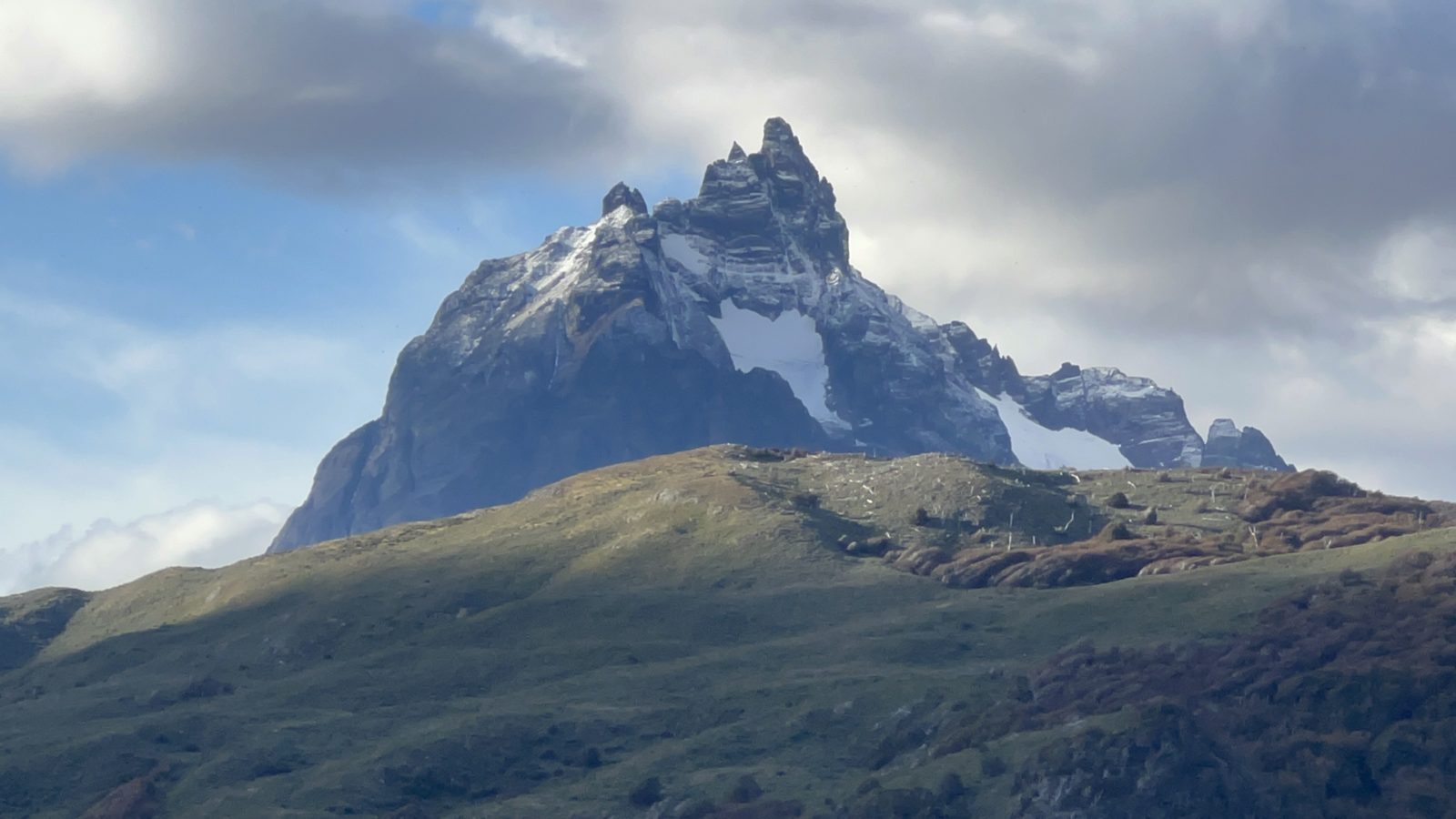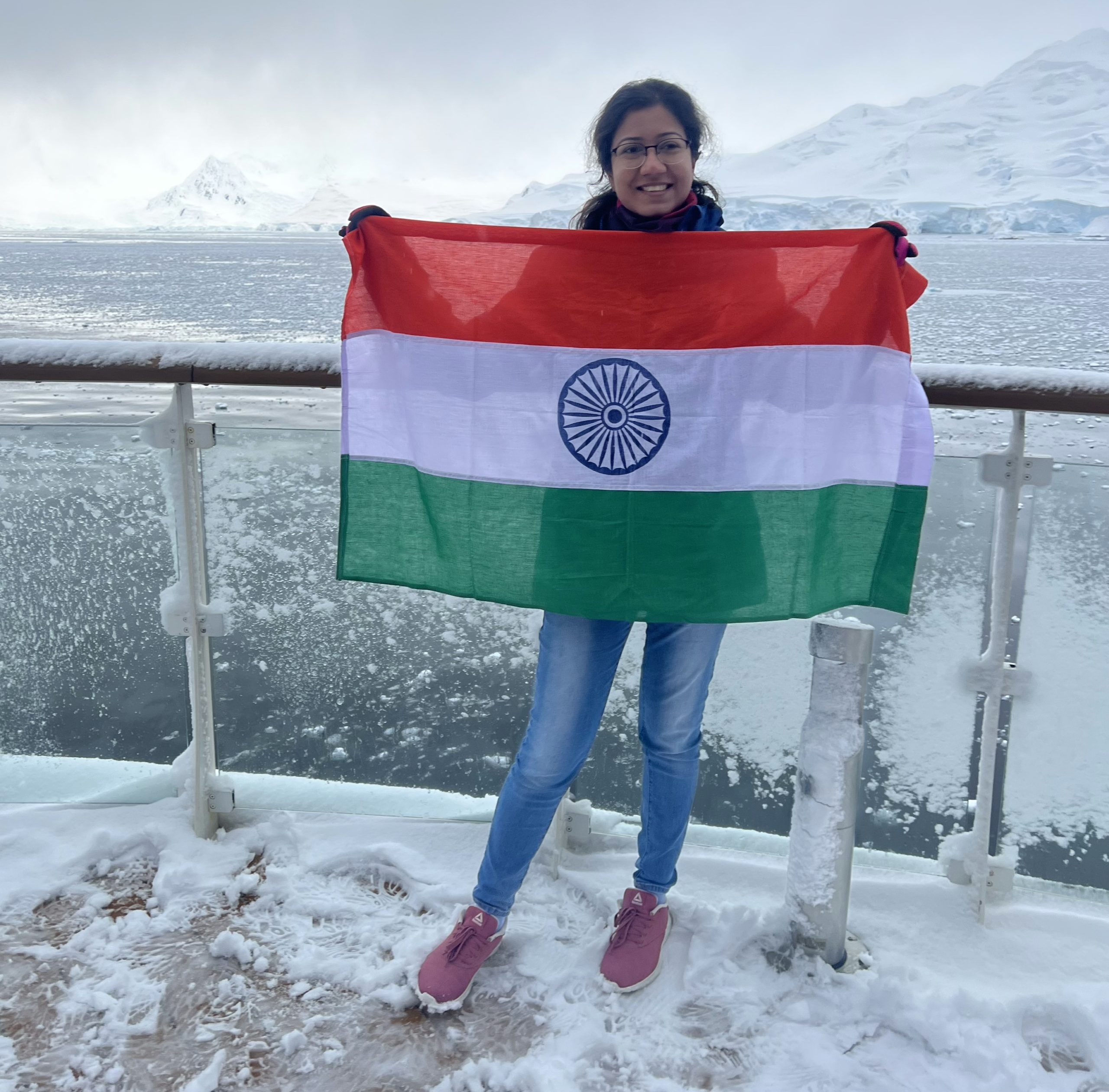
Photo: Rozita Singh
- Climate change is triggering rapid changes on Earth – and they’re rarely faster than in the Antarctic peninsula.
- There was a 150-member expedition to the continent recently to experience these changes first-hand, and appreciate the effects of climate change.
- One member, Rozita Singh, spoke to The Wire Science about what she saw and her lessons from the trip.
Kochi: Rozita Singh, of New Delhi, recently returned from a 12-day expedition to Antarctica. While she was there, she beheld the devastating consequences of global warming first-hand.
“On March 18, in Concordia base, right in the middle of Antarctica, the temperature was recorded to be 40º C more than it ever has,” she recalled. “To top it off, unusual rainfall events took place. And an ice shelf the size of Rome collapsed in East Antarctica.”
This is climate change at work – and watching its consequences unfold before her eyes was unsettling, Singh told The Wire Science. Singh is head of solutions mapping in the UN Development Programme India’s Accelerator Lab and a mentor at an online climate school called Terra.do.
“If this is not direct evidence of the impact of climate change, then what is?” Singh, a sustainable development practitioner, asked. She said the trip taught her much, including how urgent the need to hasten and scale up sustainability solutions is.
“It felt like a huge wake up call to step up action on climate change.”
The world is changing

Climate change is making its presence felt everywhere – but it is very pronounced at Earth’s poles. In the South Pole, the changes have been drastic and phenomenal.
In 2020, The Guardian wrote, a study had found that the region was warming three times faster than the rest of the planet.
Singh was there as part of the ‘Leadership on the Edge’ expedition, an annual programme organised by the three organisations called Explorers Passage, 2041 Foundation and ClimateForce. This year, 150 people from 37 countries participated.
It’s an expensive affair: the trip costs around Rs 15 lakh. Singh crowd-sourced her funds for the trip.
On their Antarctic expedition, from March 16 to 29 this year, Singh and her teammates witnessed many things they shouldn’t have.
One such had to do with Antarctic petrels – seabirds slightly bigger than a house crow. Summer is when these birds swarm in their thousands near Cierva Cove, along the west coast of the continent’s Grahamland area.
Members of Albatross Expeditions, the polar expedition operator that hosted Singh and her team, have reported spotting these birds in such numbers every year – but not in 2022.
One of the operators was particularly concerned, Singh said. “He said that something is very, very off. He thinks that because of erratic snowfall, their breeding cycle this year may have been disrupted.”
At Neko Harbour, an inlet in the Antarctic peninsula, chicks of the small gentoo penguins were still around when Singh and her team got there. According to experts, “the chicks should have left for sea already by this time, but they were still there, and even some eggs were found a few weeks before.”

Lessons from Antarctica
The expedition taught her three important things, Singh said.
“First, climate change is happening faster than we think… We need to bring speed and scale into our sustainability solutions. Second, we need collaboration and not competition. And finally, there is no need to reinvent the wheel: if someone somewhere has already thought of a solution, partner with that person/organisation!”
Singh also supported a deeper connection between environmental studies and the social sciences.
“I believe we need scientists and researchers but also artists, sociologists, folks working on finance, IT, economics, psychology, international relations and communicators to come together,” she said.
Finally, communicating climate science is really important, Singh added.
“Many still believe that climate change is unreal,” she continued. “First we must acknowledge that the climate is changing at an unnatural pace and our planet Earth is already uninhabitable. Second, we must use our existing skills, assume that we have the ability to mitigate climate change and do climate work. We need not only be researchers and scientists. We need all hands on deck to fight climate change.”
Dream come true
Though many of their sights during the trip were harsh reminders of the consequences of climate change, Antarctica also lived up to its reputation of being beautiful. “Magical and serene” – Singh said these words came to mind when she first set eyes on the continent.
According to her, “After every landing, we scrubbed the soles of our boots and sanitised them with [a disinfectant] solution. This was needed so that we don’t tamper with the bacteria in the Antarctica soil, and leave its ecosystem untouched.”
“When we heard the sound and sight of the first humpback whale, we couldn’t describe the feeling. The first sighting happened within an hour of sailing, and then we saw more and more.”
“Hearing the sound of the whales … on top of the water was just incredible… Just observing the natural sounds of nature, like two fur seals playing and one of the seals snoring away on ice – it was so special,” Singh said. “These are memories for life.”
Singh has been working on sustainability for over a decade, and “even” someone like her, she said, was “emotionally moved by this experience”.

